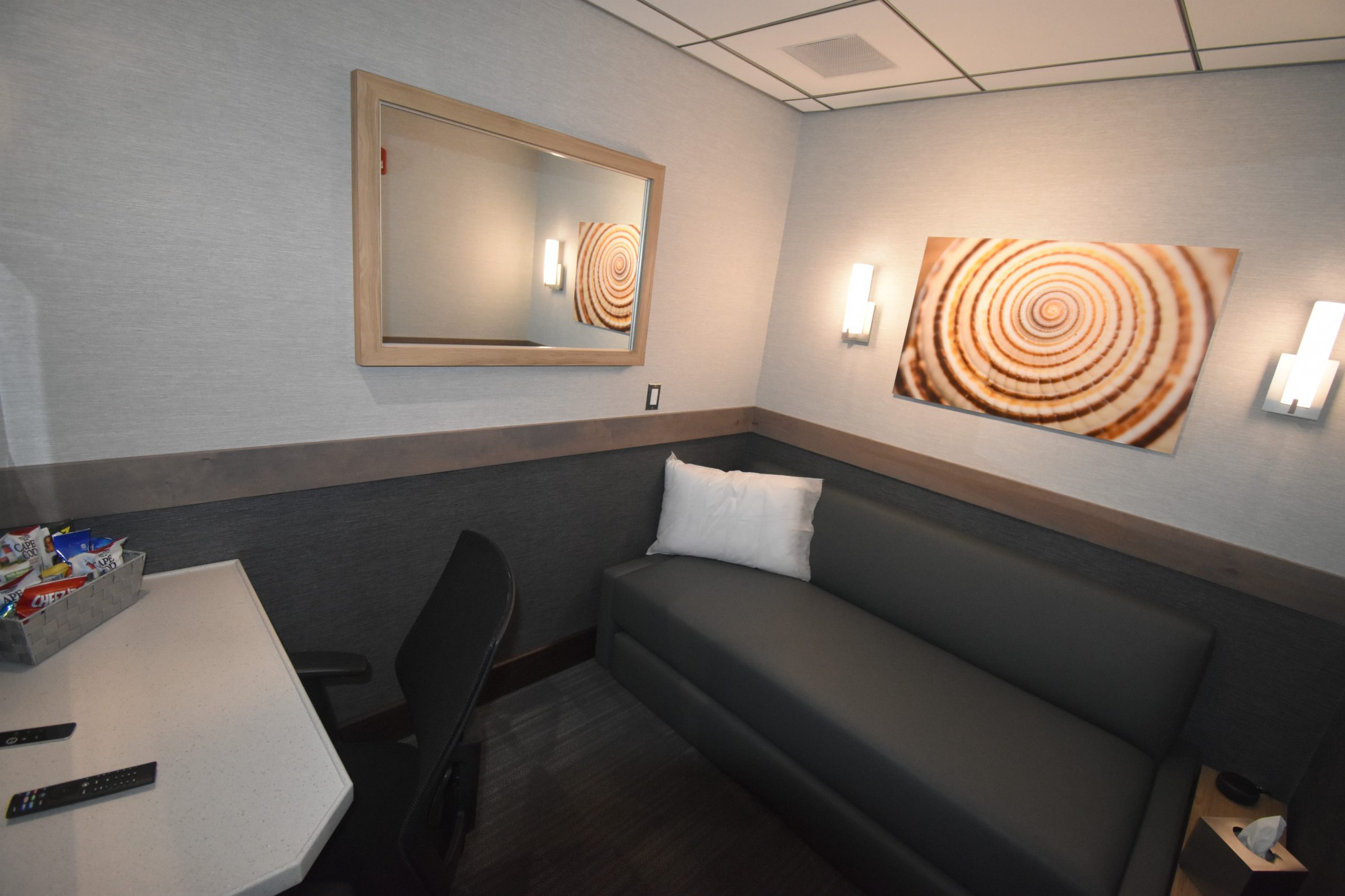- To & From BWI
- At BWI
- Flying With Us
HomeFlying With UsAbout BWIPress / MediaOctober 1, 2020 – BWI Thurgood Marshall Airport Welcomes Minute Suites
October 1, 2020 – BWI Thurgood Marshall Airport Welcomes Minute Suites
Company Offers Private Rest and Workstation Rooms for Airport Passengers
 New concessionaire Minute Suites launched services Thursday at Baltimore/Washington International Thurgood Marshall Airport. The company offers private rooms where airport passengers can relax, nap or work before a flight or during a layover.
New concessionaire Minute Suites launched services Thursday at Baltimore/Washington International Thurgood Marshall Airport. The company offers private rooms where airport passengers can relax, nap or work before a flight or during a layover.
“We’re pleased to welcome Minute Suites to the airport as an innovative new service,” said Ricky Smith, Executive Director of BWI Marshall Airport. “This is another example of the value companies see in doing business at BWI Marshall Airport, and adds to the first-class amenities we offer our customers.”
At BWI Marshall Airport, Minute Suites provides five relaxation and workstation rooms on Concourse C. The Minute Suites are accessible for passengers flying from concourses A, B or C. The private rooms include a daybed, television, workstation, free WiFi, and other amenities. The company currently has locations in four other U.S. airports, with more planned.
“We have been planning BWI for some time and we are thrilled to see it launch,” Dan Solomon, Co-founder and Director of Development for Minute Suites said. “Our service has been highly sought after for years, and now it is in even higher demand.”
 Minute Suites was founded by doctors and healthcare professionals looking to give travelers a clean and safe retreat during long waits between flights. Travelers can book a room for a minimum of one hour and a maximum stay of eight hours, depending on their needs.
Minute Suites was founded by doctors and healthcare professionals looking to give travelers a clean and safe retreat during long waits between flights. Travelers can book a room for a minimum of one hour and a maximum stay of eight hours, depending on their needs.
As more people return to travel during the COVID-19 recovery, BWI Marshall Airport remains the busiest airport in the region. Health and safety initiatives at the airport include enhanced cleaning and sanitation, hand sanitizer dispensers throughout the terminal, protective barriers at security checkpoints, ticket counters and information desks, and physical distance markers in high-traffic areas. Face coverings remain a requirement in the airport terminal, and health and safety information is provided on information displays and overhead announcement boards.
###